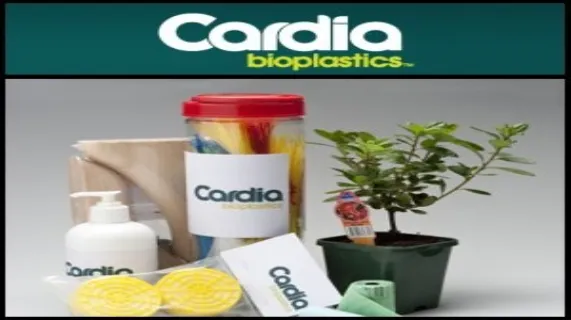
In development of CO2S technology for Bioplastics
Sydney, June 5, 2013 AEST (ABN Newswire) - The following Media Release is made by the University of Sydney, partnering with Cardia Bioplastics Limited in development of CO2S technology for Bioplastics.
Biomolecular engineers at the University of Sydney are creating cleaner, more costeffective PPC polymers that promise to transform the biodegradable polymer industry.
The plastics being developed will have a broad range of usability, at one end of the spectrum being used for fully recyclable shopping bags, at the other, as restorative implants in the human body.
A team led by Associate Professor Fariba Dehghani from the Faculty of Engineering and Information Technologies has commenced a project to design a process for creating purified biodegradable, renewable and CO2 based polypropylene carbonate (PPC) polymers.
"The project's aim is to minimise reliance on fossil fuels and address the current problems with commercial production of sustainable bio plastics PPC starch not just in Australia but globally," states Professor Dehghani.
The team is developing large scale solvent free technologies that reduce the levels of heavy metal used in PPC.
The project has been funded by both the Australian Research Council and ASX listed Bioplastics company Cardia Bioplastics Limited (CNN) through its 100 percent owned subsidiary CO2Startch Pty Ltd that also has commercialisation rights to the PPC process that aims to reduce zinc levels in the PPC manufacturing process.
Cardia is the manufacturer of the world's first Co2 plus starch carrier bag utilising Cardia's patented PPC and starch blending technology. University of Sydney and Cardia are partnering to develop new applications with PPC, the first being a medical application. The outcomes of the project will have enormous significance for both our environment and human health states Professor Dehghani.
"The clean technologies we develop will make it possible to produce environmentally friendly plastics utilising waste CO2.
"Converting captured CO2 into products such as chemicals, plastics or other commodities is pivotal in our attempts to reduce the need for volatile organic compounds (VOCS)," says Professor Dehghani.
"VOCs include a variety of chemicals, some of which can have short or long-term adverse health effects and are also potentially disastrous for our environment." The process being developed by Professor Dehghani's team could have international reach with its adaptation assisting in reducing carbon emissions in countries where geologic storage of CO2 is impossible.
On the health front Professor Dehghani says the synthetic polymer can be used as an alternative for a range of biomedical applications such as musculo-skeletal tissue engineering and drug delivery.
The cost-effective and biomimetic product could be used to treat many bone diseases such as osteoporosis and musculoskeletal injuries that affect over 3.8 million Australians.
Contact
Media enquiries:
Victoria Hollick
TEL: +61-2-9351-2579
MOB: +61-401-711-361
victoria.hollick@sydney.edu.au
| ||
|






